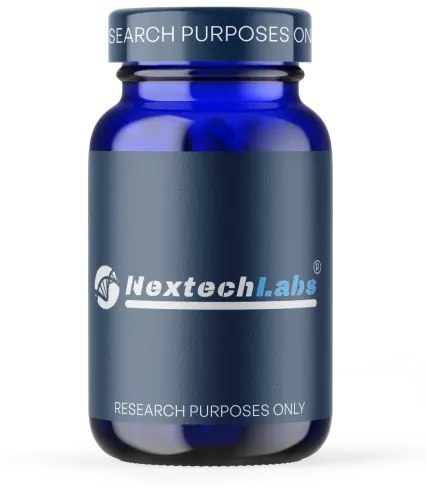What Are Research Peptides?
Research peptides are short chains of amino acids, the building blocks of proteins in your body, that are studied in laboratories for their potential biological effects. These peptides are not approved for human use and are strictly labeled “for research purposes only.”
Amino acids are used to build and repair tissues, make hormones and enzymes, and support immune systems.
When amino acids link together, they form peptides, and when peptides get longer, they become proteins.

Examples of Common Research Peptides
BPC-157
The "BPC" stands for Body Protection Compound. BPC-157 is a synthetic peptide, but it’s based on a natural compound found in the human gastric (stomach) juice.
Why Researchers Study BPC-157
- Speed up wound and tissue healing
- It may help muscles, tendons, and ligaments heal faster.
- Useful in research on sports injuries or joint damage
- Protect and repair the stomach and intestines.
- It may support healing from ulcers or gut inflammation.
- Often studied for irritable bowel disease (IBD) or colitis models
- Improve blood flow
- BPC-157 appears to support the growth of new blood vessels (angiogenesis).
- This could help tissues recover from poor circulation or injury.
- Reduce inflammation
- It might help the body handle inflammation and cell damage caused by stress.
- Support nerve regeneration
- Early research suggests it could help nerve cells repair or regrow.
TB-500
TB-500 is a synthetic peptide modeled after a natural protein in your body called Thymosin Beta-4. TB-500 was created by scientists for research purposes only and has not been approved for human use.
What Does TB-500 Do in Research?
Researchers study TB-500 for its possible effects on:
- Tissue repair
- Muscle recovery
- Inflammation control
- New blood vessel growth (angiogenesis)
Note: These peptides are intended for laboratory research only and are not approved for human use or consumption.
If you are conducting scientific or academic research and require high-quality peptides, please visit our website: [Nextech Labs].
How to Choose a Trusted Supplier for Research Peptides
When selecting a supplier for research peptides, it’s essential to choose a company that prioritizes quality, safety, and transparency. Here’s what to look for:
1. High Purity & Verified Lab Testing
Choose a supplier that provides:
- Peptides with 99%+ purity
- Third-party lab testing and Certificates of Analysis (COAs) for every batch
Why it matters: This ensures the compounds are accurate and consistent, allowing for reliable and reproducible research results.
2. Clearly Labeled “Research Use Only” Products
A trustworthy supplier will clearly label products as
- “For laboratory research only.”
- “Not for human or veterinary use”
Why it matters: Proper labeling supports ethical research practices and ensures legal compliance.
3. Fast Shipping & Responsive Support
Look for companies that offer:
- Same-day or next-day shipping
- Responsive customer service via email, phone, or chat
- Secure payment and checkout systems
Why it matters: Timely delivery and clear communication are critical for labs working on tight schedules.
4. Transparent Business Practices
Reliable suppliers will have:
- Age verification (typically 21+)
- Order screening to prevent misuse.
- Clear return and cancellation policies
Why it matters: Transparency builds trust and shows that the supplier operates with accountability and integrity.
5. No Dosing or Medical Advice
Reputable peptide suppliers do not provide:
- Dosing guidelines
- Medical advice or usage instructions
- Claims about curing or treating any condition
Why it matters: This reinforces the product’s intended use for scientific research only, not personal or medical use.
Frequently Asked Questions About Research Peptides
- Are research peptides legal to buy?
Yes, in many countries, research peptides are legal to purchase for laboratory use only. However, they must be labeled “For Research Use Only” and not intended for human or veterinary consumption. Always check your local regulations.
2. Can I use research peptides on myself?
No. Research peptides are not approved for human use. They are not tested for safety in people and should never be injected, consumed, or applied to the body.
3. Who typically uses research peptides?
Research peptides are used by:
- Universities
- Biotech and pharmaceutical labs
- Medical researchers
- Academic institutions
4. Are research peptides FDA-approved?
No. Research peptides are not FDA-approved for any medical use. They are investigational compounds used only in preclinical studies.